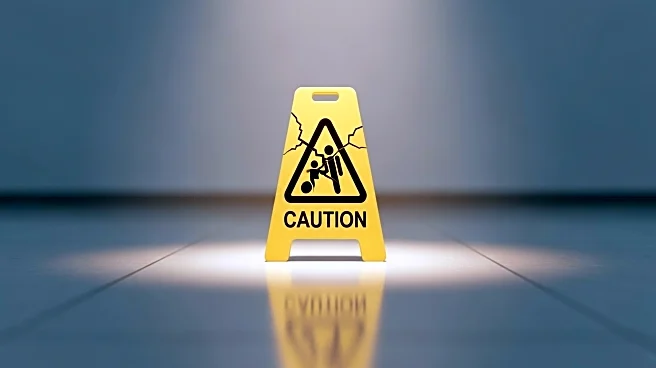What is the story about?
What's Happening?
Personal injury attorneys Miller & Jacobs from Pompano Beach, Florida, have outlined the critical elements necessary to establish liability in slip and fall cases. According to a feature in HelloNation, the attorneys emphasize the importance of evidence showing that the injured party acted reasonably while the property owner failed to address a hazard. Key components include property hazard documentation, witness testimony, and personal records. Photographs taken immediately after the incident can provide crucial proof of unsafe conditions, such as wet floors or poor lighting. Witness statements can corroborate the victim's account, countering claims that the property was safe. Additionally, maintaining detailed personal records about the incident, including time, location, and weather conditions, can strengthen a claim. The article also notes that courts assess the behavior of the injured party, such as wearing suitable footwear and avoiding distractions, to determine reasonable care.
Why It's Important?
The insights provided by Miller & Jacobs are significant for individuals seeking justice in slip and fall cases, as they highlight the necessary steps to prove liability. This information is crucial for victims who may face challenges in demonstrating negligence on the part of property owners. By understanding the importance of documentation and witness testimony, injured parties can better prepare their cases, potentially leading to successful outcomes. The broader impact of this guidance extends to property owners and businesses, who may need to reassess their safety protocols to prevent such incidents and avoid legal repercussions. This could lead to improved safety standards and reduced liability claims, benefiting both consumers and businesses.
What's Next?
As awareness of the importance of evidence in slip and fall cases grows, property owners may face increased pressure to ensure their premises are safe and well-maintained. Legal professionals and advocacy groups might push for stricter regulations and guidelines to protect consumers. Additionally, businesses may invest in better training for staff to identify and rectify potential hazards promptly. For individuals, understanding these legal nuances could lead to more informed decisions when pursuing claims, potentially influencing court outcomes and settlements.
Beyond the Headlines
The emphasis on evidence and reasonable care in slip and fall cases reflects broader legal and ethical considerations in personal injury law. It underscores the balance between individual responsibility and property owner accountability. This focus may lead to cultural shifts in how society views negligence and safety, encouraging proactive measures to prevent accidents. Furthermore, the legal strategies discussed could influence future case law, setting precedents for how similar incidents are adjudicated.















